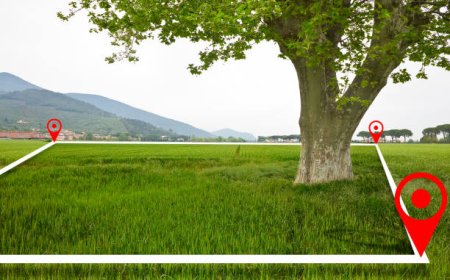Character Spotlight How Elias Vayne Transforms the Board
Explore how Elias Vayne transforms every move into a power play A deep dive into his strategic brilliance and impact on the board in our character spotlight.

In the heart of every great historical novel lies a character who defies the odds, challenges the system, and reshapes the world around them. In Pawn to King's End, that character is Elias Vaynea reluctant hero whose journey from obscurity to strategic brilliance is as riveting as the real historical backdrop in which it's set. Elias doesnt just participate in the events of his time; he rewrites the very rules of engagement, both on and off the battlefield. His evolution is not just personalits revolutionary.
Reluctant Pawn
Elias Vayne begins his journey as a low-born scribe, raised in the war-torn provinces of a fractured kingdom reminiscent of late medieval Europe. From the very first chapters, readers are made acutely aware that Elias is not the typical sword-wielding champion. He is thoughtful, observant, and intelligentqualities that serve as both weapons and shields in a world dominated by brute force and hereditary privilege.
Unlike the nobles around him, Elias doesnt have the luxury of status. His entry into court politics is not by invitation, but by sheer necessity. Through subtle maneuvers and quick wit, Elias navigates a deadly court where one wrong word can mean execution. His transformation from a "pawn" in the great game of politics into a player of strategic depth is a central motif in the novel.
What sets Elias apart from many historical protagonists is not his strength, but his ability to see several moves ahead. He is the embodiment of the chessboard metaphor the book so carefully weaves throughout its chapters. Just like in chess, each of Elias's actions is calculated, often sacrificial, but always with a greater goal in mind.
Mind Shaped by Turmoil
The novels backdropan allegorical reflection of the War of the Roses and the Hundred Years' Wargives Elias the perfect stage for his intellectual evolution. The constant upheaval, betrayals, and shifting allegiances provide both risk and opportunity. Elias quickly learns that those who survive are not the strongest, but the most adaptable.
His time in the royal archives exposes him to ancient strategies, forgotten treaties, and coded messages that others overlook. This intellectual armory becomes his secret weapon. Rather than swinging a sword, Elias undermines enemies through propaganda, misdirection, and strategic alliances. As the story progresses, he earns the begrudging respect of kings and commanders alikenot for his lineage, but for his ingenuity.
Turning the Tide Elias as a Catalyst for Change
Eliass transformation is not a solitary endeavor. His choices reverberate through the kingdom, disrupting age-old power structures. He brings meritocracy into a realm where nepotism was gospel. By championing commoners, elevating talented individuals regardless of birth, and exposing corruption, Elias turns the board upside down.
One of the most memorable scenes is his confrontation with the Grand Chancellor, where Elias uses nothing but a ledger of financial misdeeds to collapse a years-long regime of embezzlement. In doing so, he not only saves a generation from starvation but also secures his position as a force to be reckoned with.
It is through these calculated acts of rebellion that Elias earns his metaphorical promotion from pawn to kingmaker. He never seeks the throne himselfhis goals are far more nuanced. His transformation is not about power, but influence. And influence, as the novel so poignantly shows, can be far more potent than a crown.
Grounded in Historical Reality
What makes Elias Vaynes journey even more compelling is how seamlessly it aligns with real historical transitions. The book Pawn to King's End, based on real historical events, doesnt just use history as a backdropit breathes life into it. The societal structures, class tensions, and political intrigue mirror those of Europe between the 14th and 16th centuries. The author draws heavily from actual events, blending fact and fiction in a way that enriches the narrative and grounds Elias's evolution in plausible realism.
Readers familiar with the lives of historical strategists like Thomas Cromwell or Niccol Machiavelli will see parallels in Eliass rise. Like Cromwell, Elias is a man of humble origins who leverages his intellect to gain the trust of rulers. Like Machiavelli, he understands that morality is often a luxury in governance, and sometimes the ends justify the means. These comparisons arent just coincidental theyre intentional, layered into the plot to enhance authenticity and depth.
Relationships That Shape Him
Eliass journey would be incomplete without the constellation of characters that orbit around him. His relationship with Seraphine, a noblewoman who challenges his assumptions and forces him to confront his own biases, provides emotional complexity. Through her, Elias learns that intellect alone is not enough compassion, vulnerability, and loyalty are equally vital.
Similarly, his mentorship of young acolytes reflects his commitment to leaving behind a better world. Rather than hoarding knowledge, Elias becomes a teacher, a reformer who nurtures the next generation of thinkers and leaders. These relationships humanize him, making his transformation not just political, but personal.
New Kind of Hero
In a genre often dominated by warriors and warlords, Elias Vayne stands apart. He represents a new kind of heroone who fights with knowledge, not weapons; who leads with vision, not violence. His ability to transform the board without ever seizing the throne himself speaks to a quiet, enduring strength that is both admirable and rare.
His journey is not without sacrifice. Elias loses friends, makes enemies, and constantly walks the tightrope between manipulation and integrity. But it is in these moral complexities that the character truly shines. His flaws dont weaken himthey make him believable.
Legacy of Elias Vayne
By the end of Pawn to King's End, Elias has not only changed the fate of a kingdom but has redefined what it means to be powerful. His legacy is not etched in monuments or military victories, but in the policies he implemented, the minds he shaped, and the truths he unearthed.
His transformation is not a moment, but a movementa gradual, relentless push against the tide of tradition. In doing so, he becomes more than a character; he becomes a symbol of change, a testament to the power of intellect in a world too often governed by the sword.
Final Thoughts
Elias Vaynes journey in Pawn to King's End is a masterclass in character development, historical immersion, and narrative complexity. He is a rare protagonist whose growth is both believable and inspiring, and whose impact transcends the pages of the novel. Through Elias, readers are invited to reconsider what it means to be strong, to lead, and to win.
Whether you're a fan of historical fiction or character-driven narratives, Eliass transformation will leave you contemplating your own position on lifes chessboard. After all, every pawn has the potential to become something greaterthe key is knowing how to play the game.




































